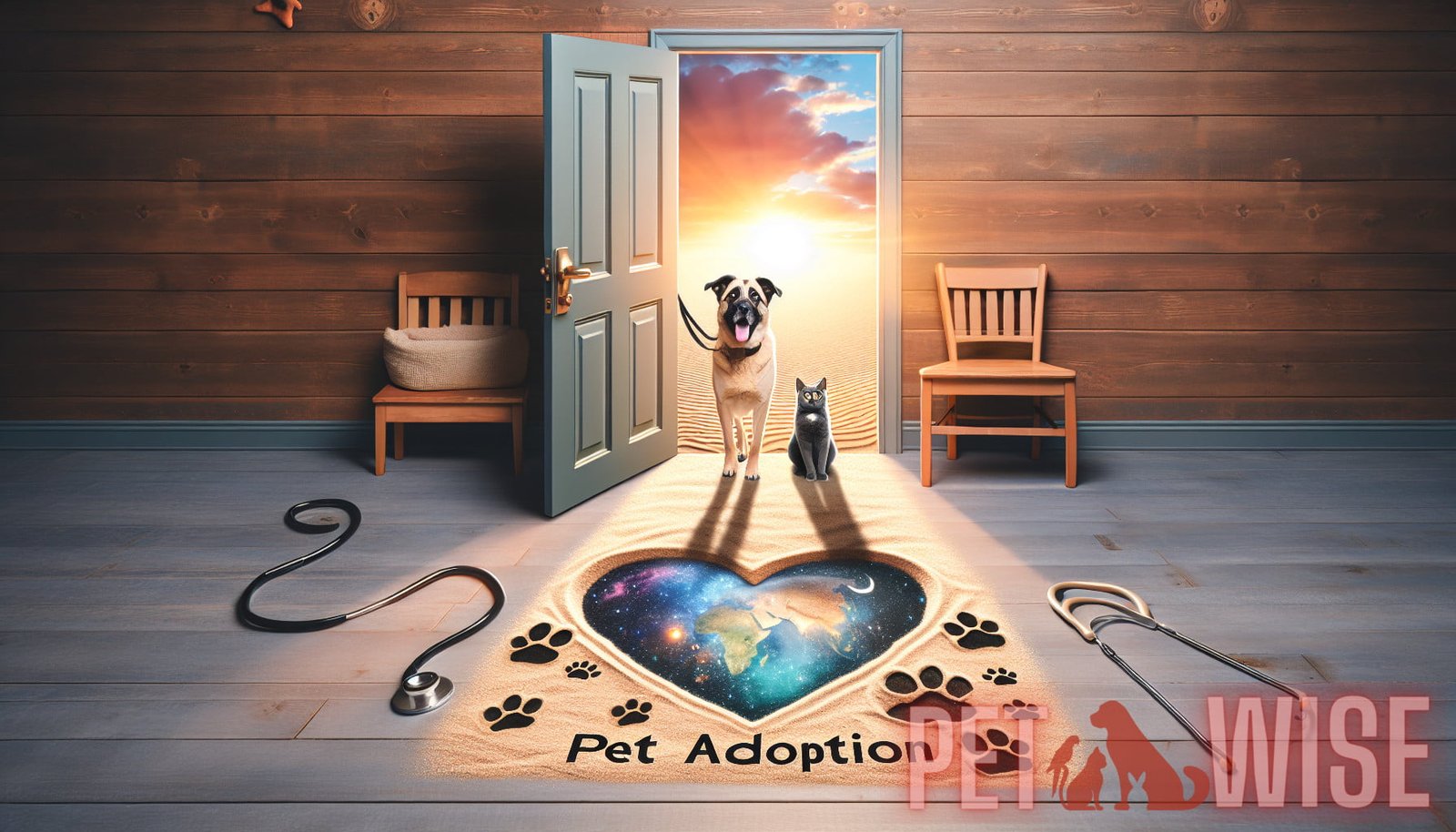Decoding the Ancestral Bond: Unraveling the Profound Psychological Benefits of Pet Adoption
Pet adoption is a topic that has gained significant attention in recent years. Many individuals and families have experienced the joy and fulfillment that comes with opening their hearts and homes to a furry, four-legged companion. While the emotional benefits of pet ownership are well-known, the profound psychological benefits of pet adoption are often overlooked.
Research has shown that the bond between humans and animals goes beyond the surface. It taps into a deep-seated, ancestral connection that has evolved over thousands of years. This bond triggers a range of psychological responses and has a positive impact on our mental well-being.
The Evolutionary Psychology of Pet Adoption
Our ancestors lived in close proximity to animals, relying on them for survival. Dogs were the first animals to be domesticated, serving as protectors, hunters, and companions. Over time, a strong bond formed between humans and dogs, which laid the foundation for our modern-day relationship with pets.
Psychologists believe that the bond between humans and animals is rooted in our evolutionary past. Pets provide us with a sense of connection to nature, which is deeply ingrained in our DNA. This connection triggers a range of psychological benefits, allowing us to tap into our ancestral heritage.
The Psychological Benefits of Pet Adoption
1. Reduced Stress and Anxiety: Numerous studies have shown that pet ownership can help reduce stress and anxiety. The simple act of petting a dog or cat has been found to lower blood pressure and heart rate, promoting a sense of calm and relaxation. Pets also provide emotional support, which can help alleviate symptoms of anxiety and depression.
2. Improved Mental Health: Interacting with animals has been shown to have a positive impact on mental health. Playing with a pet increases the release of endorphins, dopamine, and serotonin, chemicals that are known to improve mood and well-being. Pets can also provide a sense of purpose and routine, which is especially beneficial for individuals struggling with mental health disorders.
3. Enhanced Social Interaction: Pets can act as social facilitators, helping individuals connect with others. Taking a dog for a walk or visiting a dog park can provide opportunities for social interaction and conversation. Pets can also serve as icebreakers in social situations, making it easier for individuals to initiate conversations and build relationships.
4. Increased Physical Activity: Owning a pet can motivate individuals to engage in physical activity. Taking a dog for a walk, playing fetch, or engaging in other forms of exercise with a pet can help improve cardiovascular health and overall fitness levels. Regular physical activity has countless benefits, including reduced risk of chronic diseases and improved longevity.
5. Boosted Immune System: Research has shown that pet ownership can have a positive impact on our immune system. Exposure to pets and their associated microbes can strengthen our immune response and reduce the risk of developing allergies and asthma, particularly in children.

6. Stress Relief: Pets provide unconditional love, support, and companionship. They offer a sense of comfort and security, especially during times of stress or loneliness. The presence of a pet has been shown to reduce cortisol levels, a hormone associated with stress, and increase oxytocin levels, a hormone associated with bonding and relaxation.
Choosing the Right Pet for Adoption
Adopting a pet is a big decision that should not be taken lightly. Consider the following factors when choosing the right pet for adoption:
- Lifestyle: Consider your lifestyle and the amount of time and energy you can dedicate to a pet. Some pets require more exercise and attention than others.
- Space: Ensure that you have enough space in your home for a pet to roam and play. Some pets, such as large dogs, require more space than others.
- Allergies and Health: If you have allergies or other health concerns, consider the hypoallergenic qualities of certain pet breeds or consult with a doctor before making a decision.
- Compatibility: Consider the compatibility between your lifestyle and the needs of different pet breeds. Some pets are better suited for families with children, while others may thrive in a quieter environment.
By considering these factors, you can ensure that you make an informed decision and choose a pet that will fit seamlessly into your life.
Conclusion
Pet adoption is not only a compassionate act, but it also offers profound psychological benefits. The ancestral bond that exists between humans and animals triggers a range of positive psychological responses, including reduced stress and anxiety, improved mental health, enhanced social interaction, increased physical activity, boosted immune system, and stress relief. However, it is important to choose the right pet that aligns with your lifestyle and needs. By considering these factors and adopting a pet, you can experience the transformative power of the psychological bond and enjoy the lifelong companionship and fulfillment that comes with it.
Sources:
2. An article available at The First Pet Essentials: A Comprehensive Guide to Adopting Your New Family Member.
3. An article available at The Ultimate Guide to Senior Pet Adoption: Unlocking the Hidden Benefits



